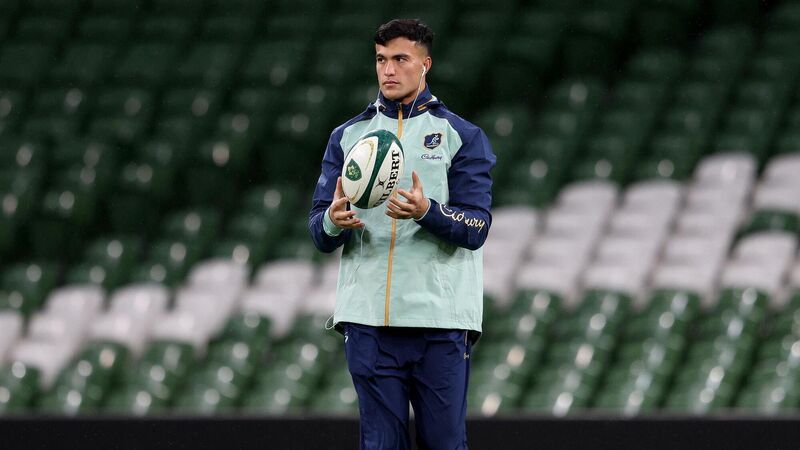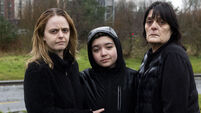View from Down Under: Wallabies ready for Irish but still have an eye on the Lions

WIRED FOR SOUND: Joseph-Aukuso Sua'ali'i at the Aviva Stdium on Friday. INPHO/Andrew Conan
IN many ways, it was mildly remarkable the Wallabies and their fans were crestfallen after a loss to Scotland last weekend - which abruptly ended their hopes of completing a grand slam tour of the UK and Ireland.
The romance of matching the feats of the fondly-remembered 1984 Wallabies, on the 40th anniversary, no doubt played a part in driving the optimism.












